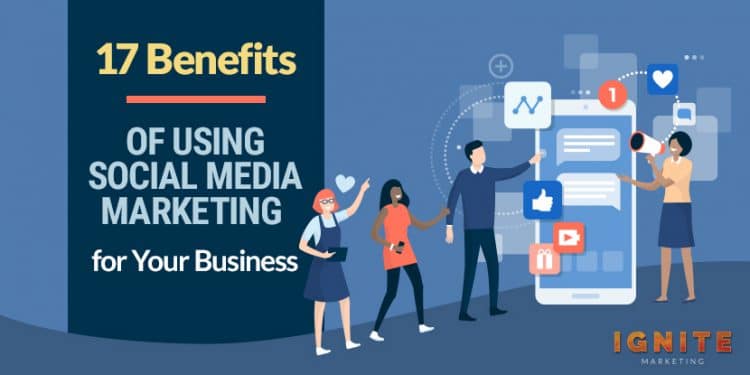


There are now more than 3 billion people around the globe using social media.
And almost every single one of these people is using social media to interact with businesses.
Social media marketing has the potential to improve almost every aspect of your business. If you’re not taking advantage of this worldwide phenomenon, you might be wondering: what are the benefits of social media marketing?
Here are 17 concrete benefits that using social media marketing will bring to your business.
Posting on social media gives you the ability to boost your brand awareness amongst your target market. While brand awareness is a concept typically associated with large corporations, it plays a role in the success of small businesses too. Comprehensive seo services for restaurant websites drive more traffic, increasing both online and in-person visits.
Here are a few concrete ways that increase brand awareness can help your business:

Short of giving out your cell number, using social media is the easiest way for customers and prospects to get in touch with your business. There are a variety of reasons people might want to contact you ‒ and all of them are important enough to warrant a faster method of communication.
According to these inbound marketing stats from Invesp, inbound marketing is the most cost-effective type of marketing you can perform.
If you’d like to up your inbound marketing game, social media is one of the best ways to drive consumers to your website or business. Sharing videos, blog posts, infographics, and other relevant content on social media can bring people to your website or YouTube channel ‒ both of which can help convince visitors to book an appointment or buy a product.
While posting your website’s content won’t directly affect your SEO, it can provide an indirect boost to your search engine rankings.
One of the metrics Google uses to rank content is the number of visitors a website gets. Content that gets shared on social media will inevitably drive at least some traffic to the host website ‒ and this social-driven traffic boost can also help your odds of landing that coveted first search result spot.
Another metric Google uses is the amount (and quality) of the backlinks going to your content. If there are a significant number of links coming from various social media profiles, it’s going to bring some benefit to your SEO.
Marketing on social media is an excellent way to connect with other businesses. There are all sorts of partnerships and referral arrangements you can set up with other businesses that complement your niche ‒ but you can’t build these relationships if these businesses don’t know you exist.
Building a following on social media will help attract these mutually beneficial relationships. It will also provide some social proof that you’re an influencer in your space, which will help to convince businesses that partnering with you is a valuable and profitable idea.
More visibility means more conversions. If your business is active on social media, you’ll automatically have significantly higher visibility than competitors who aren’t ‒ which also means you’ll benefit greatly from partnering with a Conversion Rate Optimization agency.
And if you’re good at being active on social media, you’ll likely have a substantial following who genuinely care about the content you post. Having this dedicated following is worth its weight in gold, as everything you post about will reach their eyes and help them along your sales funnel ‒ no matter where they are in the Buyer’s Journey.
There’s nothing better than free traffic. By using posting high-quality content to a devoted following on social media, you can substantially increase the number of people your business is visible to ‒ all without spending a penny.
Having accounts on all of the major social media websites makes it easy for customers to leave you feedback.
Instead of forcing your customer to find your email address or phone number buried somewhere on your website, they can navigate to one of your social pages and message you from there. This creates a significant friction reduction in your customer service system.

How much does a negative review really affect your business?
Well, according to BrightLocal... quite a lot.
Fortunately, being active on social media can help with this. Having active social media accounts on the most popular platforms ‒ Facebook, Instagram, and Twitter for B2C and LinkedIn for B2B ‒ can help divert negative reviews toward your social inboxes and away from a permanent spot on your Google or Yelp profile.
When many people leave negative reviews on Google or Yelp, they often just want a way to vent their frustrations about an experience they had involving your business. They aren’t necessarily looking to hurt your business in the long run ‒ even though that’s exactly what a negative review will do.
However, social media isn’t a perfect solution to the negative review problem.
Angry customers can still leave comments on your posts or in relevant Facebook groups ‒ exactly where your target market will see them. While this might protect you from some permanent negative feedback on one of the review aggregation sites, the bad taste left in your followers’ mouths by a negative post is something that will be hard to wash out.
That being said, an angry post on social media is still better than a negative review on Google or Yelp. The fast-paced nature of social media means that the post will quickly be buried under all of the new content you and others post. But a negative review will affect you for years to come.
When I talk about “brand authority,” I’m really talking about how much people trust your brand. When your target market thinks about your industry, do they consider you an expert?
If they don’t, proving your expertise over social media can help to change their opinion.
Here are a few easy ways to use social media to increase your brand authority:

According to Fundera, 43% of customers spend more money at brands they’re loyal to. They also say that 65% of a company’s business comes from existing customers.
Given these statistics, it’s evident that building brand loyalty is an important part of any marketing strategy. And social media is probably the best tool you have in your loyalty-building arsenal.
Here are a few actionable tips you can use to build brand loyalty on social media:

Social media advertising is one of the cheapest advertising options out there. You can test out a promotional idea for as low as a couple of dollars ‒ good luck finding that kind of a bargain on a non-social platform.
To give you a better sense of how cheap social media ads can be, here’s a rundown of average ad costs on the major social platforms:
Some of the most ignored benefits of using social media are the incredible insights they give you on your target market. By building and engaging with a following, you’ll get a front row seat to everything you’d want to know about your target market:
Lead generation is one of the most important parts of the online marketing process. Some of these stats collected by Jumplead and Ringlead serve to accentuate the importance.
Alright, you get it ‒ leads are important.
Social media gives customers a simple, accessible way to show their interest in your business.
One feature in particular that can help you with this is Facebook’s lead ads ‒ an ad format designed specifically for generating leads. It consists of an image, some ad copy for persuasive purposes, and a Sign-Up button to take them to the information input form.
The best part about generating leads with Facebook ads is that you don’t need a sizable following to start. Facebook will place your lead gen ad directly in front of users who have never interacted with your business before, allowing you to turn ice cold prospects into toasty leads with a few clicks of your mouse.
Facebook’s lead generation ad format is so powerful that Renault UK, a French automotive company, used lead gen ads to bring a 7.9x lower cost per lead (compared to regular Facebook ads linking to a lead form on the Renault website).

The web presence of many businesses can seem robotic and artificial, especially if they weren’t put together by someone who doesn’t understand the power that a touch of humanity can bring to a marketing strategy.
But even if your website has the overall humanity of a refrigerator, social media will change that overnight. Here are a few post formats that will build a strong emotional connection between your business and your followers:
Bringing out the human side of your brand is especially important for local businesses. Consumers typically feel a stronger emotional connection with a small business in their town than they do with large multinational corporations.
This is because they can relate to the small business owner more than they can relate to the 1,000+ employee corporation with a millionaire CEO. You deal with many of the same problems as your consumers do and reminding them of your brand’s humanity will only further encourage them to do business with you.
By posting helpful content on a regular basis, you can use social media to establish your brand as a thought leader in whatever industry you work in. If you consistently show your followers that you know what you’re talking about ‒ and consistently offer innovative solutions to their problems ‒ they will start to trust you as a true authority in your niche.
Becoming a thought leader isn’t about stroking your ego ‒ it’s one of the best ways you can build consumer trust. According to LinkedIn, more than 80% of buyers said thought leadership builds trust. And having an audience that genuinely trusts you is one of the most valuable things your business can have.
According to the Pew Research Center, the vast majority of social media users log into their accounts at least once per day. The most active platform was Facebook, with 74% of users visiting the platform at least once daily. The least active was YouTube, which still came in at a respectable 45%.
By posting, commenting, and liking every single day, you can stay at the top of your followers’ minds daily. This consistency will eventually pay off the next time one of these consumers needs your product or service.
